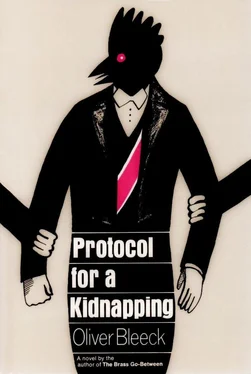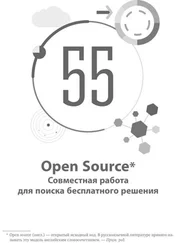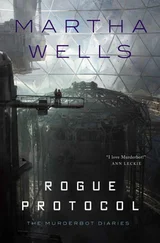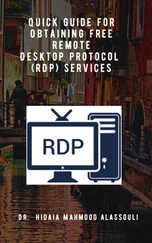“We’d better see,” I said.
We went through the door that led from the sitting room and down a hall. The first room on the left was the kitchen. It had a door that led to a small yard that faced on an alley. The first room on the right was a bedroom. I went in followed by Tavro. Mrs. Jones, her gray hair spread over a pillow, lay in a large double bed, the covers down to her waist. She was naked except for the hole under her left breast. The two tabby cats sat at the foot of the bed and stared at her with yellow eyes.
“Children?” I said.
Tavro shook his head. “They are away at school. The oldest boy is in America.”
“What did Jones want to talk to you about?” I said.
Tavro turned his mouth down at the corners, making his face more fishlike than ever. “I do not know,” he said.
“No idea?”
“I can only speculate,” he said.
“Well?”
“It may have been about my attempt to leave the country.”
“Why didn’t he talk to you about it earlier?”
“You mean today?” Tavro said.
“Yes.”
He turned from the dead woman. “I do not know.”
“Why would they want the listening device?”
“I would assume that they are not only the killers, but also the listeners. The police would find the device overly interesting.”
“I wonder if those two knew?” I said.
“Knew what?”
“What Jones wanted to talk to you about.”
Tavro looked more gloomy than ever as he paused at the sitting room door that led to the street. “I haven’t been thinking about that,” he said. “I have been thinking of something else.”
“What?”
“Those two who killed our friend Jones and his wife.”
“Yes?”
“I’ve been wondering why they didn’t kill us.”
There are two roads to Sarajevo and after I was through telling them that Jones was dead, we took the shorter one which goes through Ub, Valjevo, Titovo Uzice, and Visegrad.
There wasn’t much conversation as we left Belgrade. Arrie, sitting next to me, was silent for the most part, answering anything I said with monosyllables or just grunts when possible. Wisdom swore at the road and the Yugoslav bureau of public highways, if there was one. In the rear Gordana slept with her head on Knight’s shoulder. Jovan Tavro stared out of the window, as if trying to memorize sights that he would never see again. It began to snow.
Traffic was light except for the trailer trucks, usually pulling tandems, that traveled in fast caravans as they headed for the town where only a little more than a century ago camels from Constantinople and beyond came down with bad colds because of the altitude. Sarajevo had been a major terminal on the caravan routes from the east. Now its chief fame rested on the assassination on St. Vitus Day in 1914 of an Austrian archduke and his morganatic wife by a teenager who got a lot of the blame for touching off World War I. If you took a long view of history, you could also blame Gavrilo Princip for World War II and any other conflict that’s popped up since then — even, by stretching a point, for the one in Vietnam. It’s something to think about and that’s what I did as we drove through the snow that fell in wide, wet flakes, cutting visibility to less than thirty yards.
“The chauffeur that the archduke had took the wrong turn,” I said. “Let’s hope that you don’t.”
“What chauffeur?” Wisdom said.
“The one who was driving Franz Ferdinand and his wife, Sophie,” I said. “In 1914.”
“In Sarajevo,” Wisdom said. “Bad security there. Worse than Dallas.”
“Anyway, there had already been one attempt on his life in Sarajevo that day so they changed the route. But nobody told the car ahead of the one that the archduke was in so when it turned up a side street the man driving the archduke got confused and came to a dead stop until somebody straightened things out for him. He stopped right in front of Gavrilo Princip who had a revolver in his pocket. Princip shot Franz Ferdinand in the heart and when Sophie threw herself across her husband, she caught the second bullet. The Austrians took a dim view of all this and blamed the Serbs and so started World War I.”
“What happened to Princip?”
“There was a law that nobody under twenty-one could be hanged in the Austrian empire. They tried him, convicted him, and threw him in jail. He died there.”
“What happened to the chauffeur?” Wisdom said.
“I don’t know.”
By the time we passed Valjevo, the snow plows were out, trying to keep the road open. I switched places with Wisdom, cleaned off the rear window, and we started out again as the snow continued to fall, packed on the road now. Driving got tricky. I was dubious of going much over fifty kilometers an hour so we crept along, the Mercedes’ lights revealing a lot of snow and an occasional road sign which said that the next town of any size was Titovo Uzice.
“What’s Titovo Uzice like?” I said, twisting my head to look at Tavro.
“It’s a place of much liveliness,” he said, adding, “and little else. We had our first headquarters there in 1941, but the Germans drove us out. For every soldier they lost they killed as many as three hundred Serbian hostages.”
“Anyplace we could stay?” I said. “We aren’t going to make it much farther in this snow.”
“I may know of such a place,” Tavro said and I left it at that.
It was nearly three A.M. when we crept into Titovo Uzice and followed the highway markers to the town square that boasts a two-story-high statue of its namesake. That night it looked something like the abominable snowman. On Tavro’s recommendation, we stopped at the Palace Hotel which was just across from the park. Taking Arrie along in case I needed an interpreter, I woke up the night clerk. He was in his thirties and willing to discuss our problem at length, but that still left him with just 120 beds and they were all full. Completely.
“Ask if he has any suggestions,” I said.
“I already did. He said no.”
As we turned to leave, the night clerk called us back. He looked apologetic and with much spreading of the hands and a number of elaborate, don’t blame me shrugs he went into a long description. When he was through, Arrie turned to me and said, “He says that he has heard of a place that sometimes takes in travelers. He won’t swear to its quality nor recommend its accommodations because he himself has never set foot in it, but he has heard that it exists.”
“What is it,” I said, “the local whorehouse?”
She asked him that and he looked shocked at first, then reddened, and finally shook his head vigorously. Arrie asked him another question and he answered her with a brief, prim sentence.
She turned to me. “I’ve got a general idea of how to get there,” she said.
“How far?”
“About a mile.”
It was less than a mile and it was off the highway on a side street where the snow was now about ten inches deep. When I stopped the Mercedes I had the feeling that we weren’t going any farther that night even if we tried. It was a three-story building of gray stone that looked to be about fifty years old. It sat back from the street thirty feet or so surrounded by some tall trees that bowed beneath their frostings of snow. At one time the building might have been an elementary school or the headquarters for some regional government office. Even at night it had that grim look of utilitarian officialdom about it, but the modest green neon sign, written in Roman script, proclaimed it to be the Ritz Hotel.
“It’s the town whorehouse,” Wisdom said.
“The clerk at the Palace said no. We asked him.”
“I do not remember it,” Tavro said, “but I have not been here in several years.”
Читать дальше












